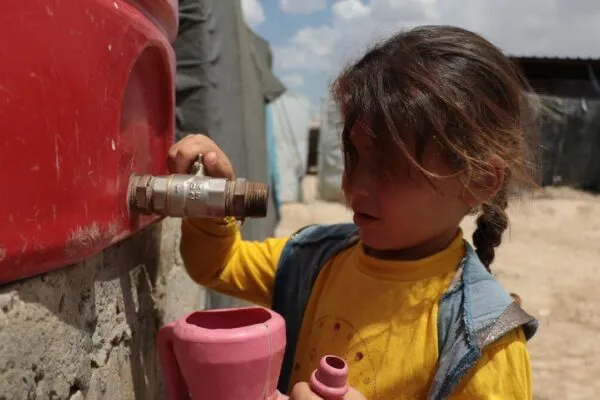World Water Day 2020: Over 30 Scary Pictures Depicting India’s Worsening Water-Crisis
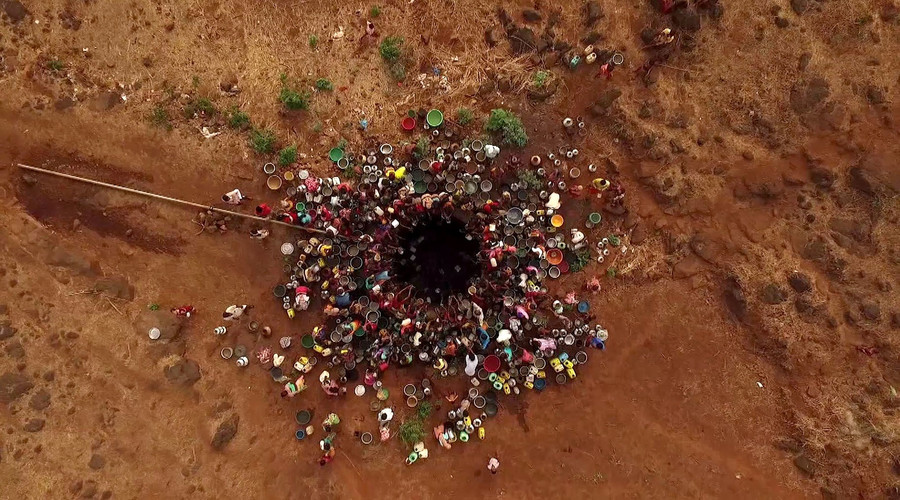
Photo: RT Documentary
World Water Day 2020 (WWS) is being celebrated with this year’s theme ‘Why Waste Water?”. Apparently, the idea is to encourage water conservation. For a country like India, this day holds special value as it has the largest rural population without access to clean drinking water. As per WaterAid’s report, 62 million people in rural regions do not have access to clean drinking water. This makes India number one in the list trending nations that are facing crisis.
The report also suggests that diseases such as cholera, blinding trachoma, malaria and dengue would witness a massive rise in numbers. Also, malnutrition would prevail and prosper as rural people will struggle even to grow food and maintain livestock without water. The women would have to travel more distance on feet to fetch drinking water.
The major share in the rising demand for water will come from the urban population, which, unfortunately, uses more than they need and are blank about the re-use of wastewater. As per the report, India’s one-sixth groundwater resources are over-burdened and over-extraction will soon consume them completely.
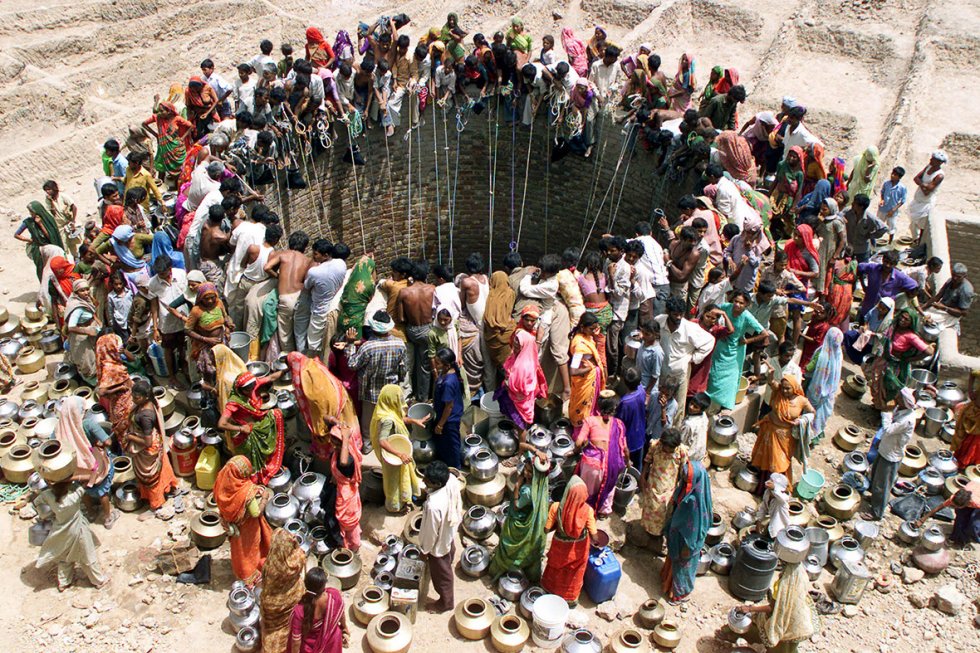
Natwarghad Village in the western Indian state of Gujarat / Photo: Reuters
Urbanization has almost choked lifelines (Rivers) of India like Yamuna and Ganga. Yesterday, the two holy Rivers were granted the title of “living human entity” in a judgment by Uttarakhand High Court in the hope to encourage conservation. The worst example can be seen in Bengaluru – the garden city of India where lakes have started catching fires. Isn’t it too much?
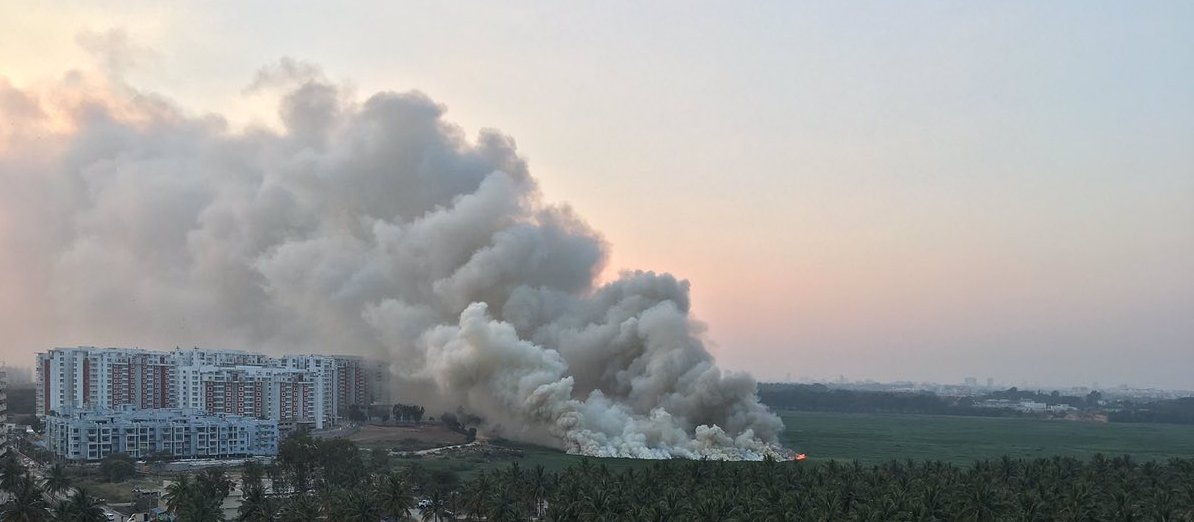
Lake in Bengaluru is so polluted that it keeps catching fire
Currently, the best way out is to reclaim wastewater by adopting new methods being used in developed nations. Israel, for instance, recycles over 50 percent of its domestic waste-water, which is an incredible solution to water-scarcity.
WWD was first observed in March 1993 after March 22 was designated as the WWD by the U.N. General Assembly. The message was clear – water conservation. But despite that message, here we are in 2017 in a dungeon with water crisis looms over our heads.
But still, it’s not too late to observe the increasing demand for water and depleting water resources due to various man-made reasons. By 2030, the demand for drinking water is estimated to grow by 50 percent, for which the world isn’t prepared.
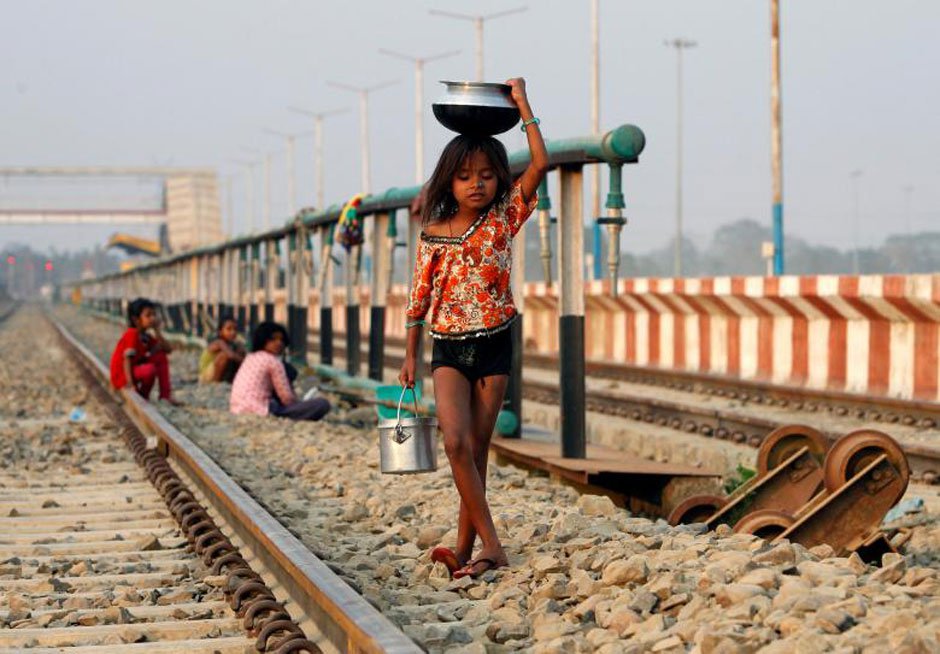
On the outskirts of Agartala. Photo: Reuters
India deserves special mention as it has the largest chunk of the population without access to clean drinking water. Take a look at some pictures depicting increasing water-scarcity in various regions of India:
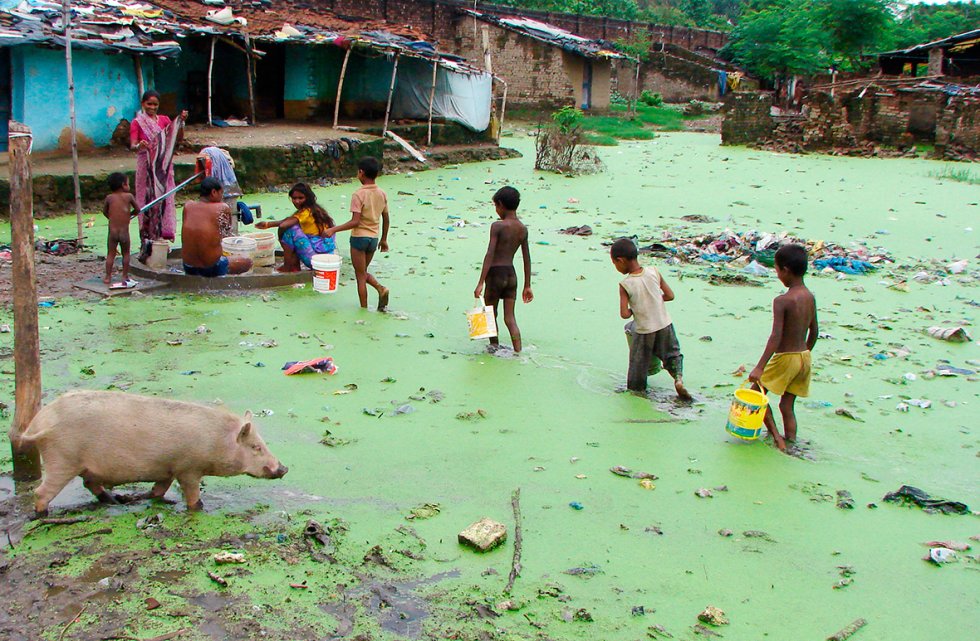
Slum-dwellers in the northern Indian city of Allahabad. Photo: Reuters
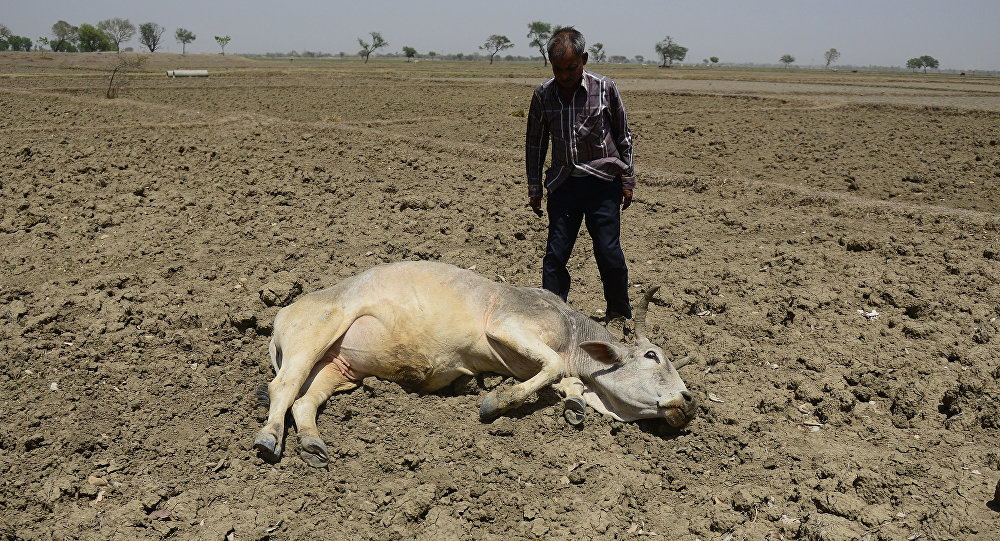
Indian farmer tries to revive unconscious cow dying on an unploughed field during a water crisis in Gondiya village / Photo: AFP
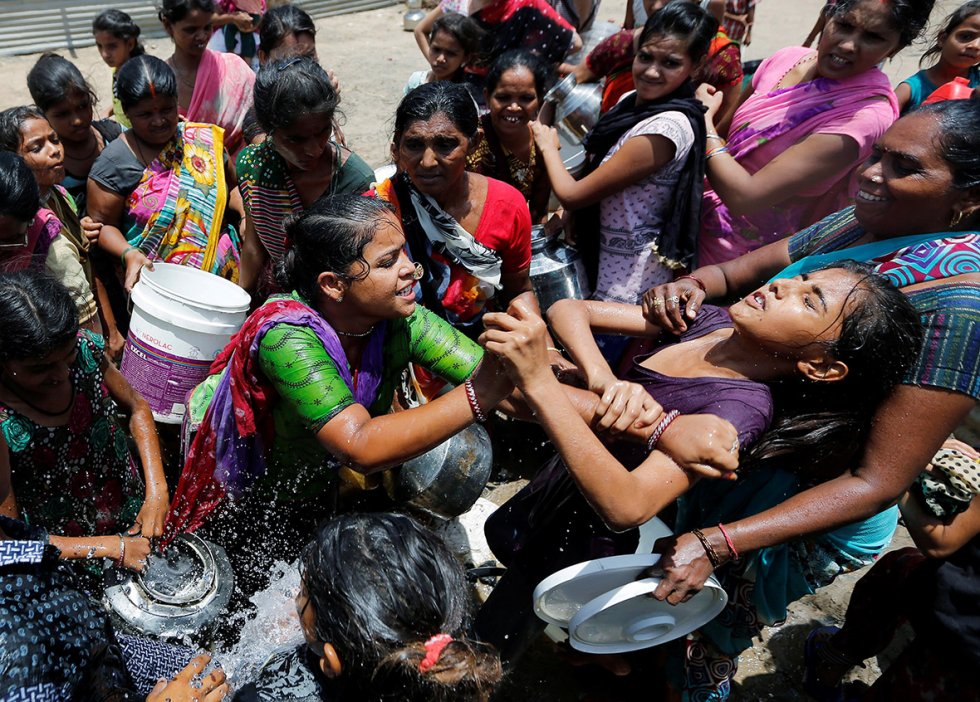
Women fight over drinking water from a municipal tanker in Ahmadabad / Photo: Reuters
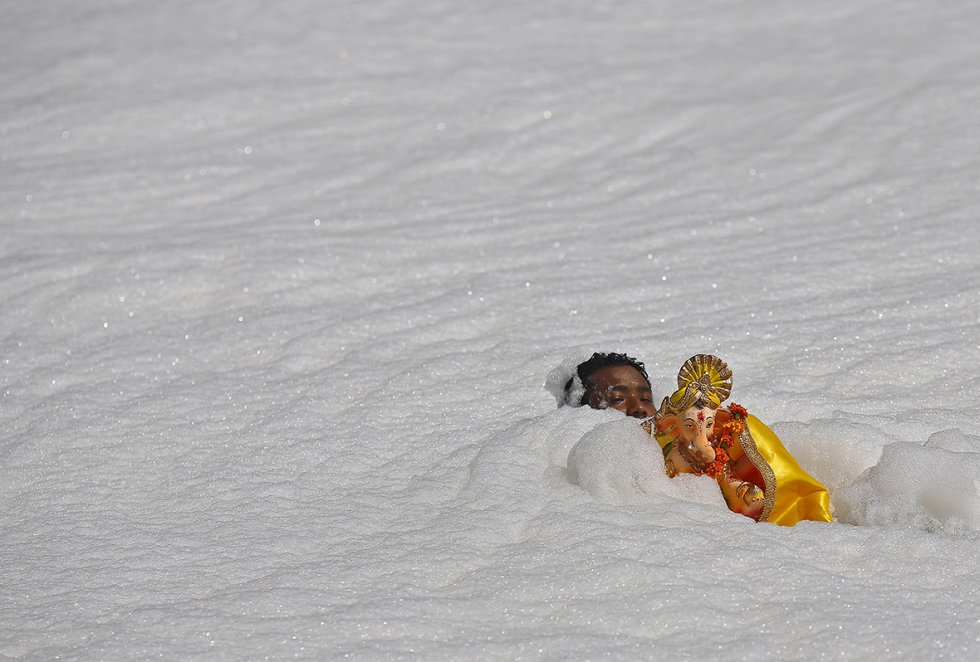
Man carrying Hindu god Ganesh statue through the polluted waters of the holy river Yamuna in New Delhi / Photo: Reuters
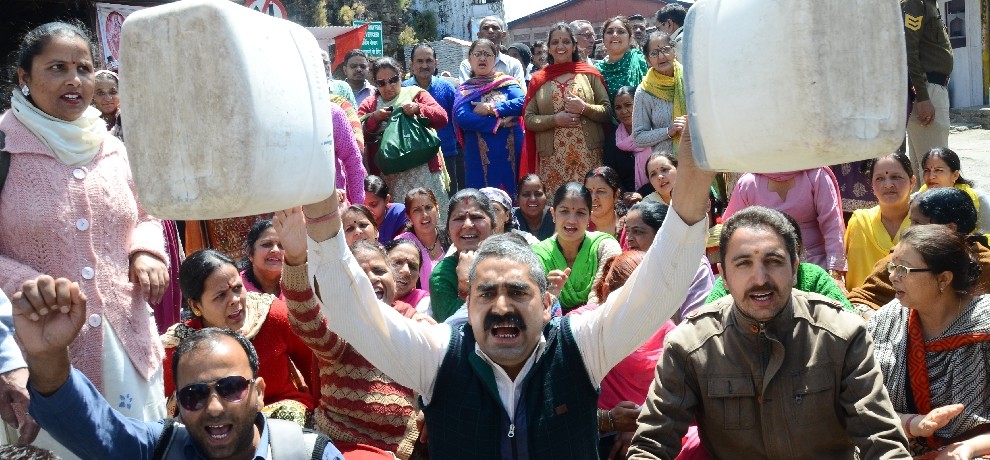
Angry people protest against the civic body in Shimla for water shortage / Photo: Amar Ujala
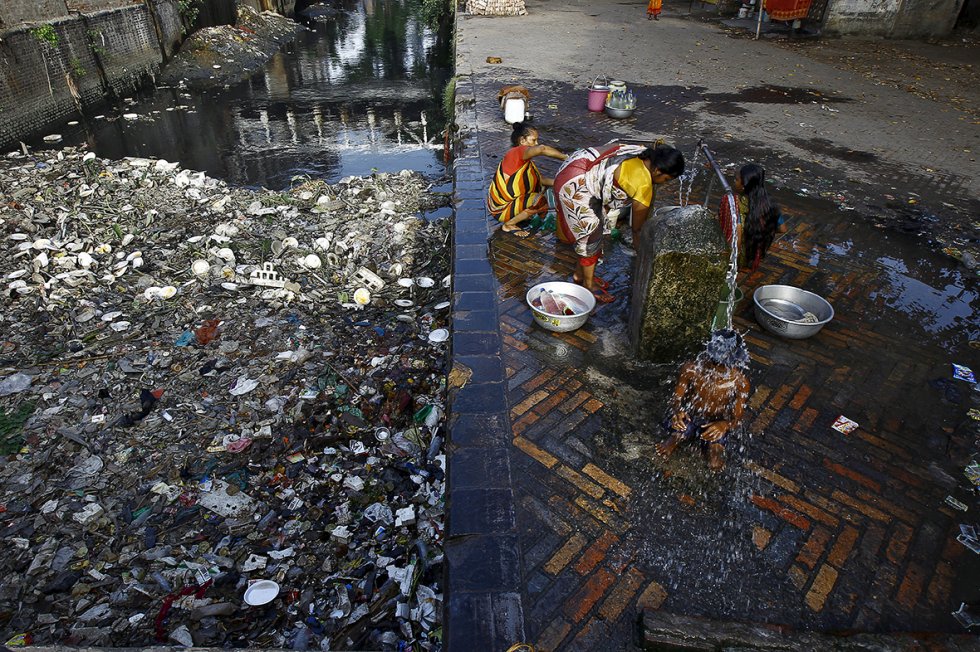
Near a polluted water channel in Kolkata
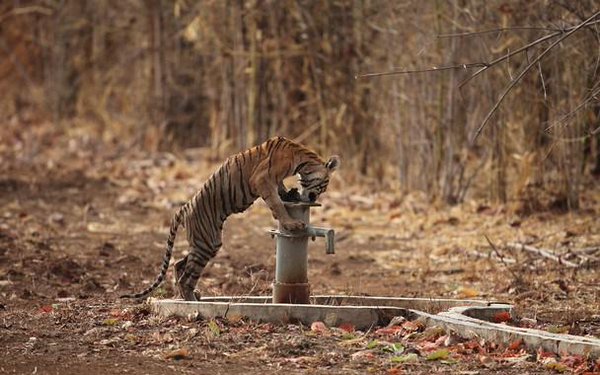
Water scarcity drives animals out of forests in India
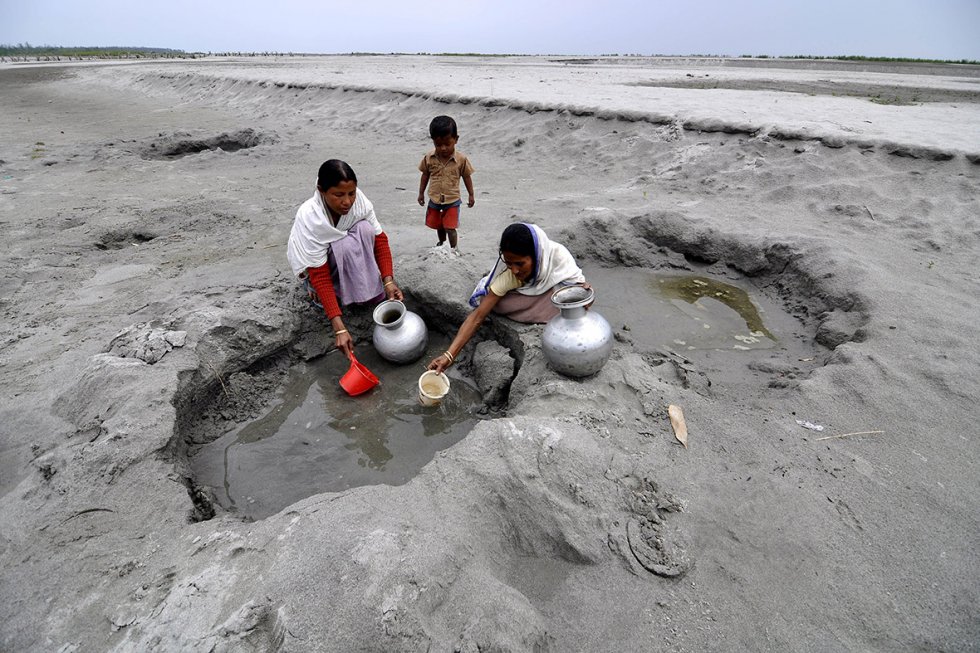
Siang River at Berasapori village in Assam / Photo AFP
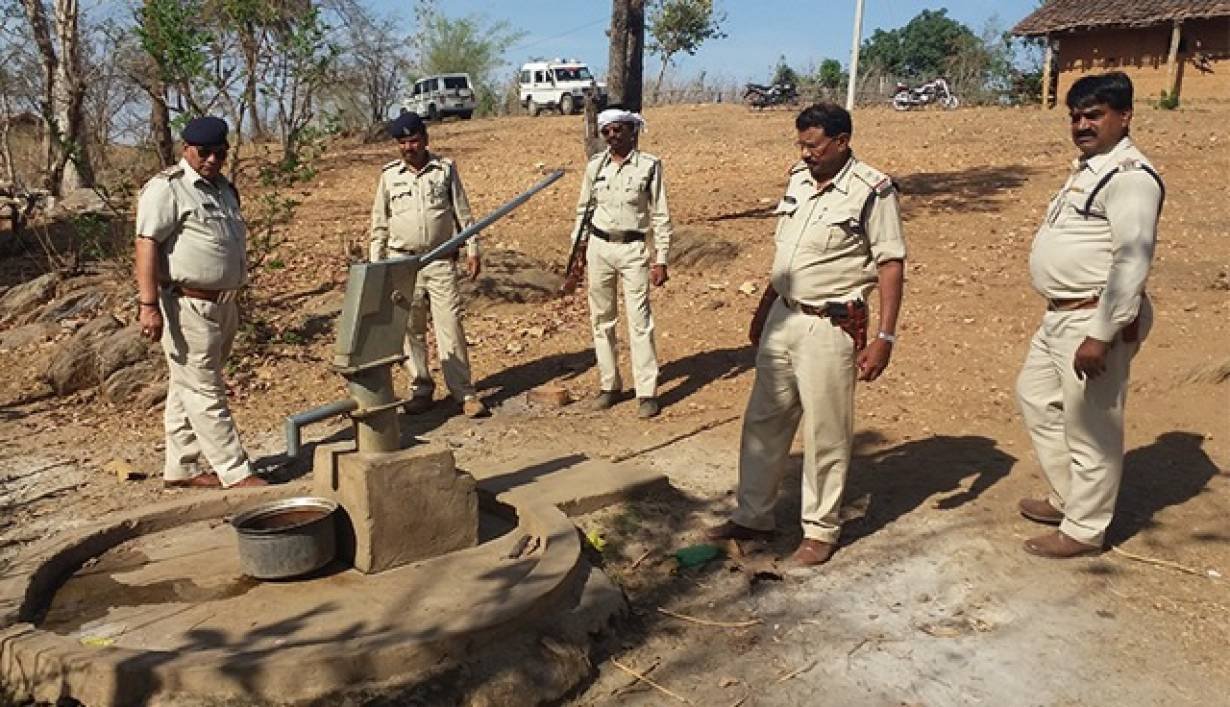
Cops on the scene after a murder over water in Chhatarpur district, Bundelkhand
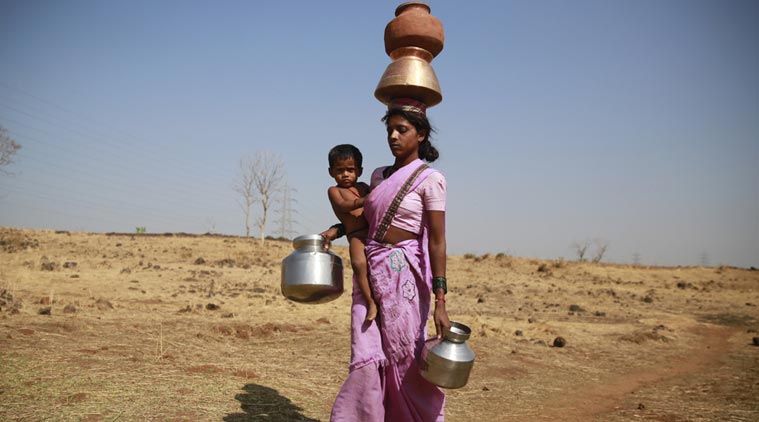
While on her way to a communal tube well at Raichi Wadi village, Mumbai / Photo: AP
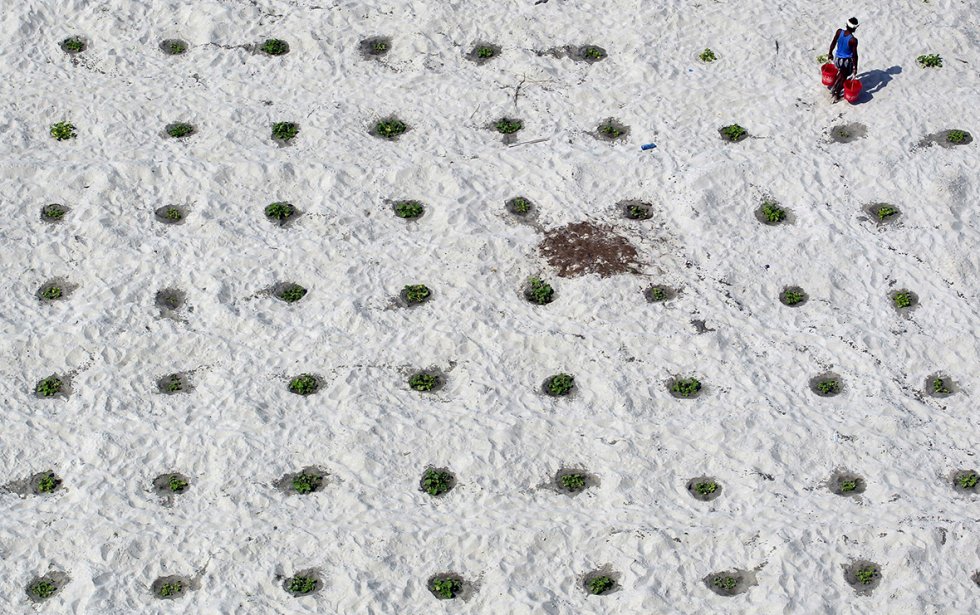
On the banks of the river Ganges in Allahabad
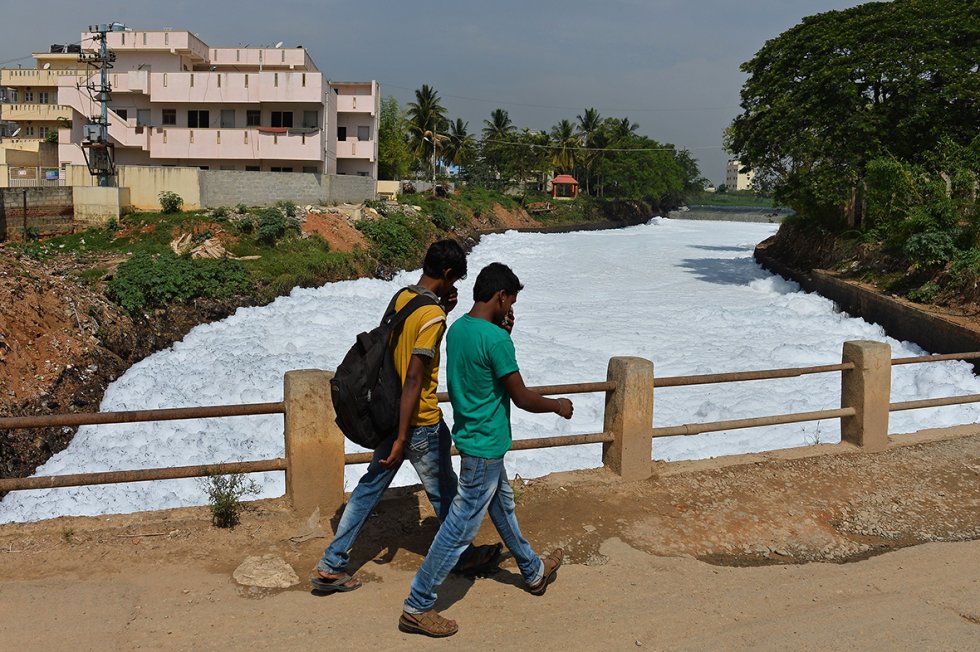
Pedestrians cover their noses as they cross a bridge over a polluted canal in east Bangalore / Photo: AFP
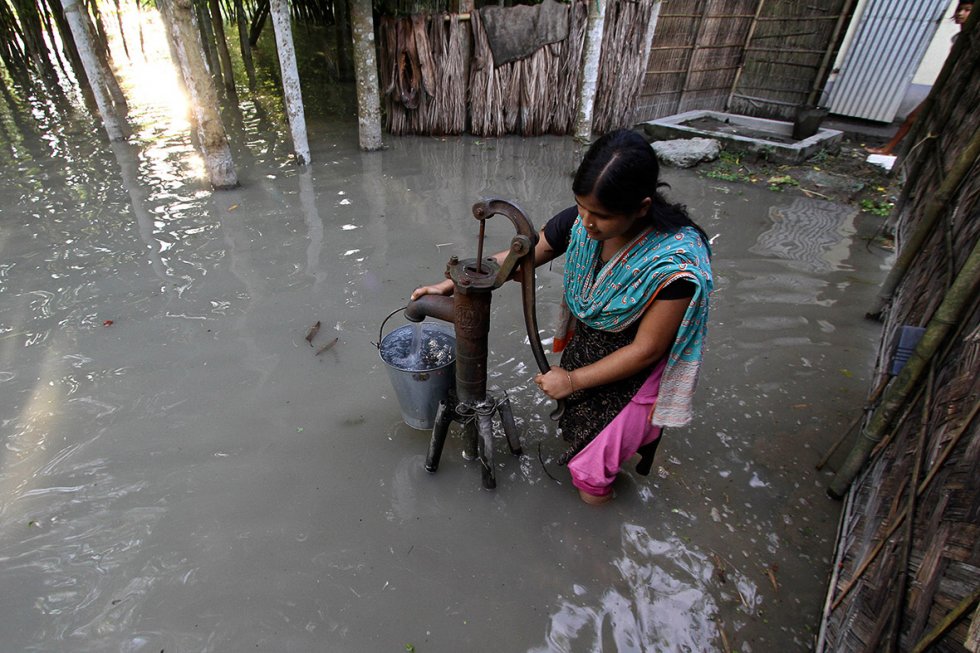
A submerged hand-pump at Dhuhibala village in Assam / Photo: Reuters
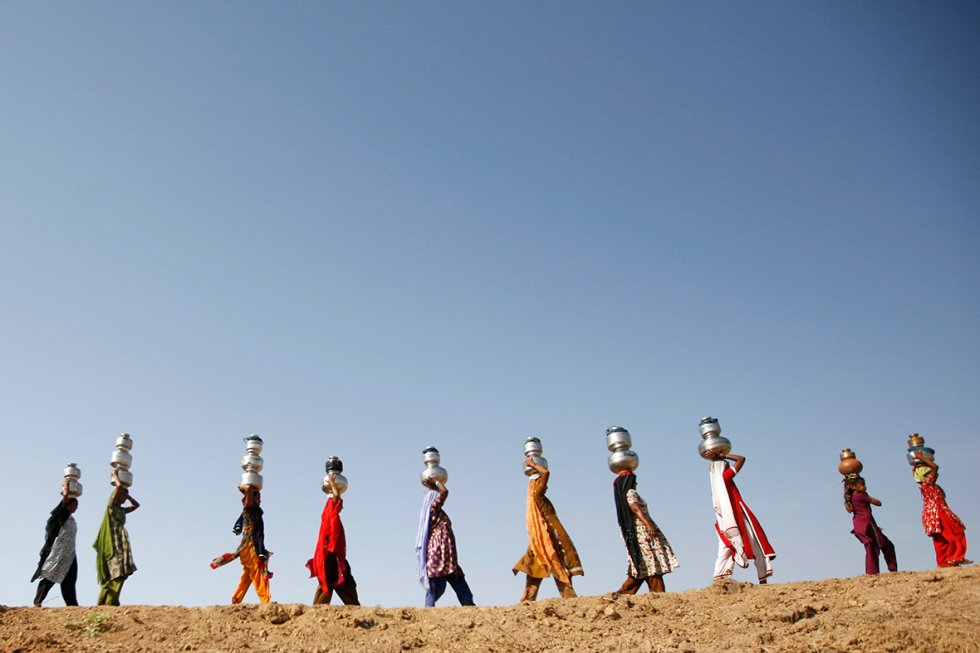
Villagers walking miles to fetch water in Meni village in Gujarat / Photo: Reuters
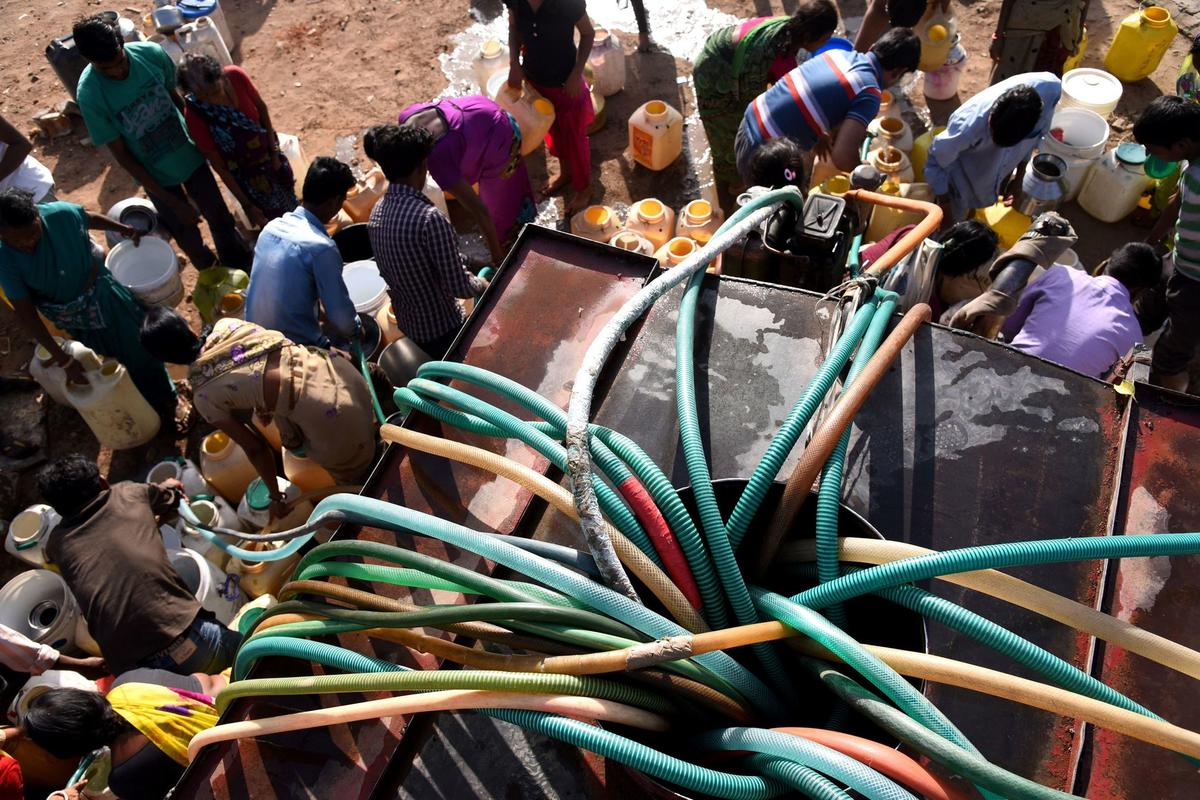
Collecting drinking water from a tanker in Bhopal, India
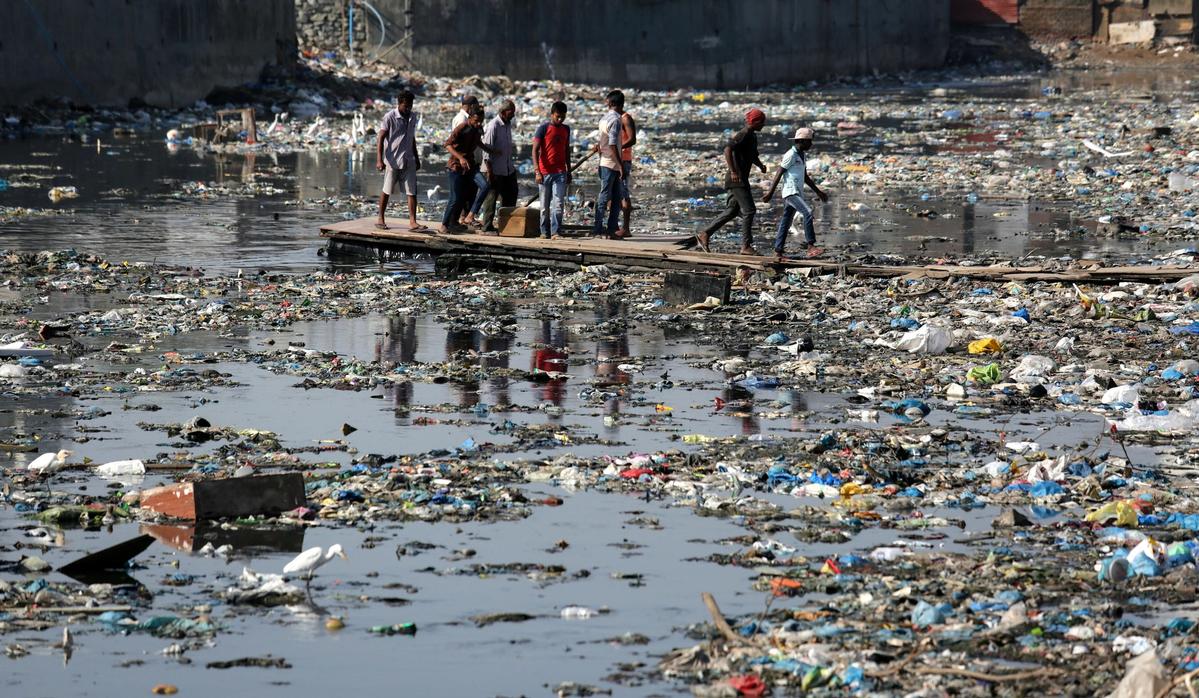
Plastic waste and other litter with the help of a makeshift raft in Mumbai
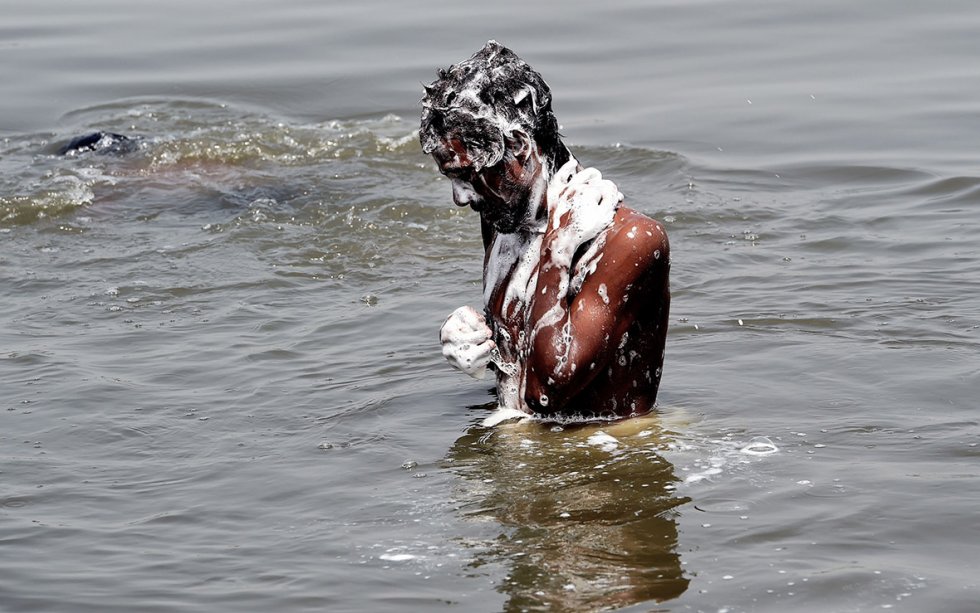
A man bathes in the polluted waters of the river Yamuna in New Delhi
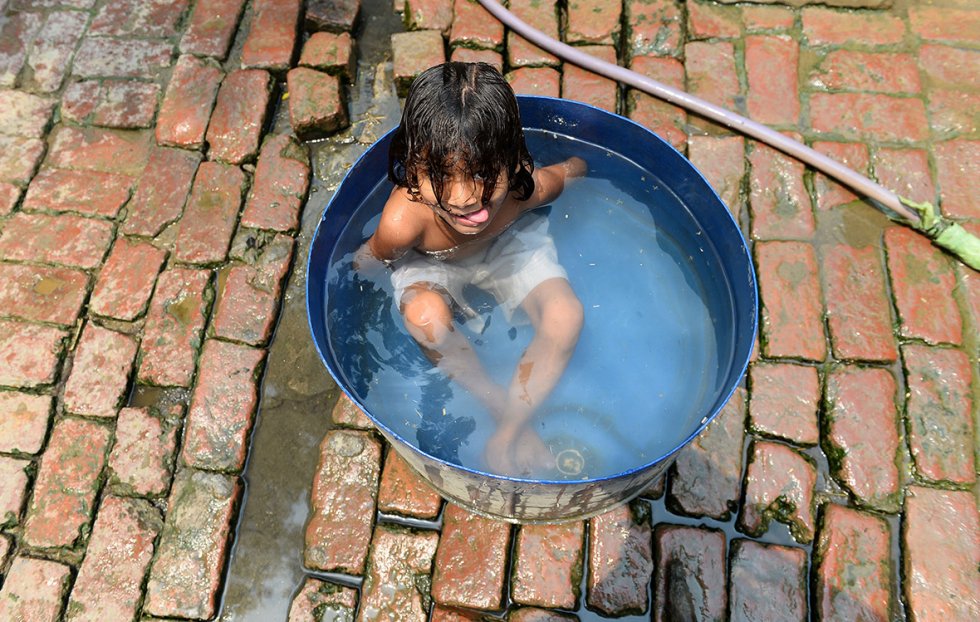
Bathing in contaminated water in Gangnauli village in Uttar Pradesh / Photo: AFP
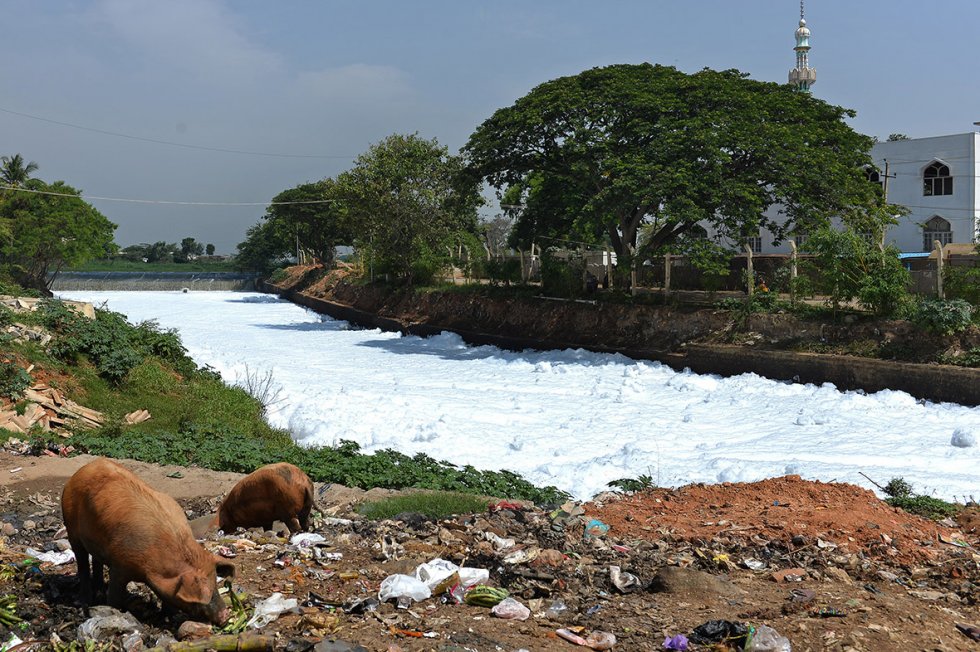
Bellandur Lake to Varthur Lake filled with toxic foam emanating from sewage in east Bangalore / Photo: AFP
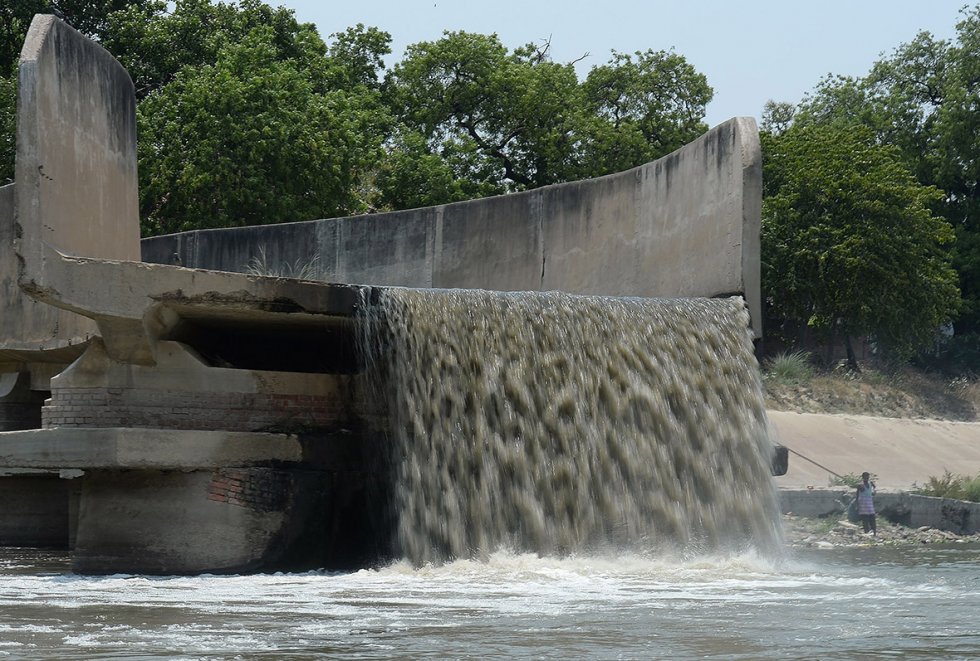
Untreated sewage waste falling into the river Ganges in Kanpur / Photo: AFP
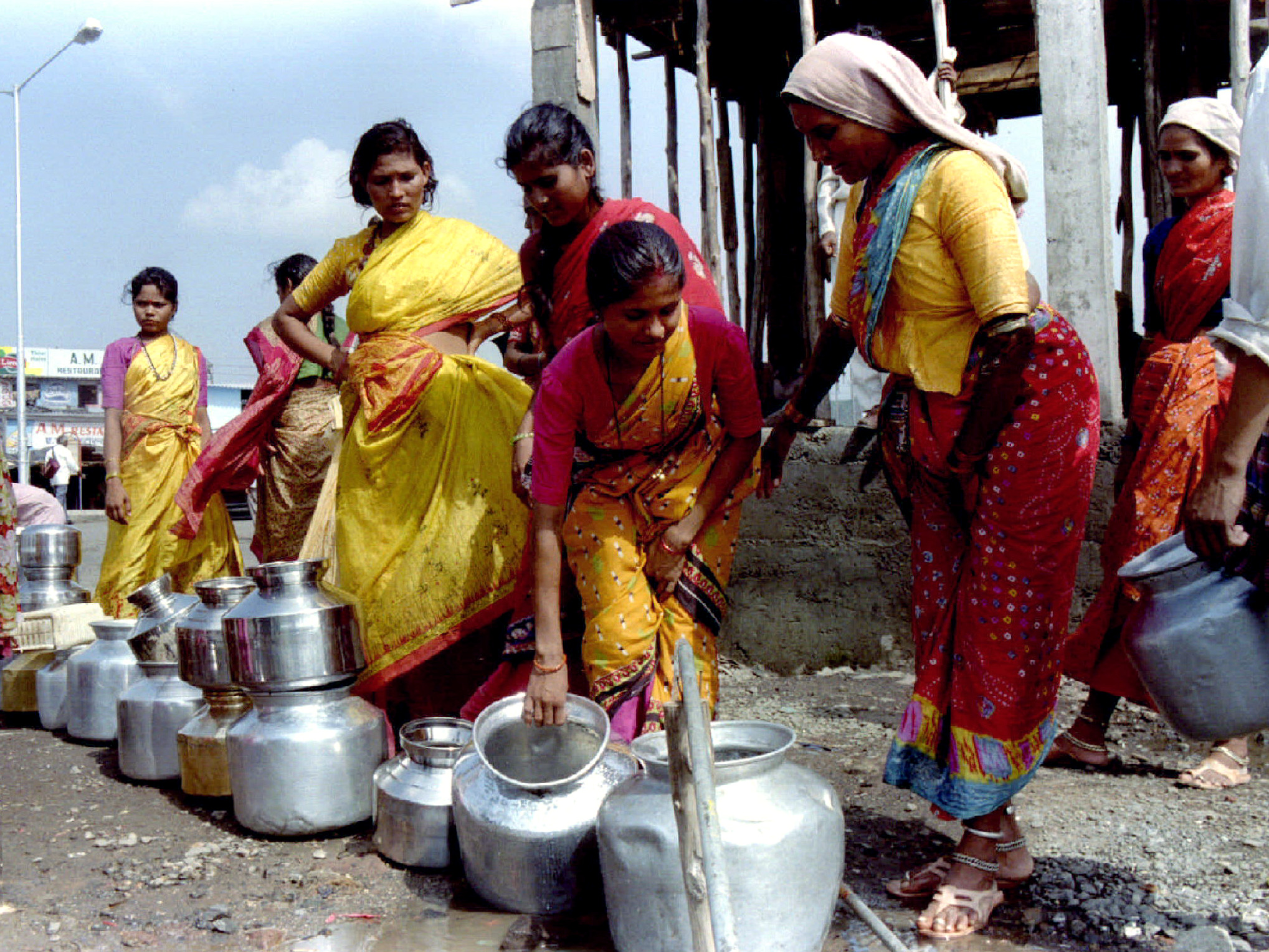
Lined up to collect drinking water in Bombay
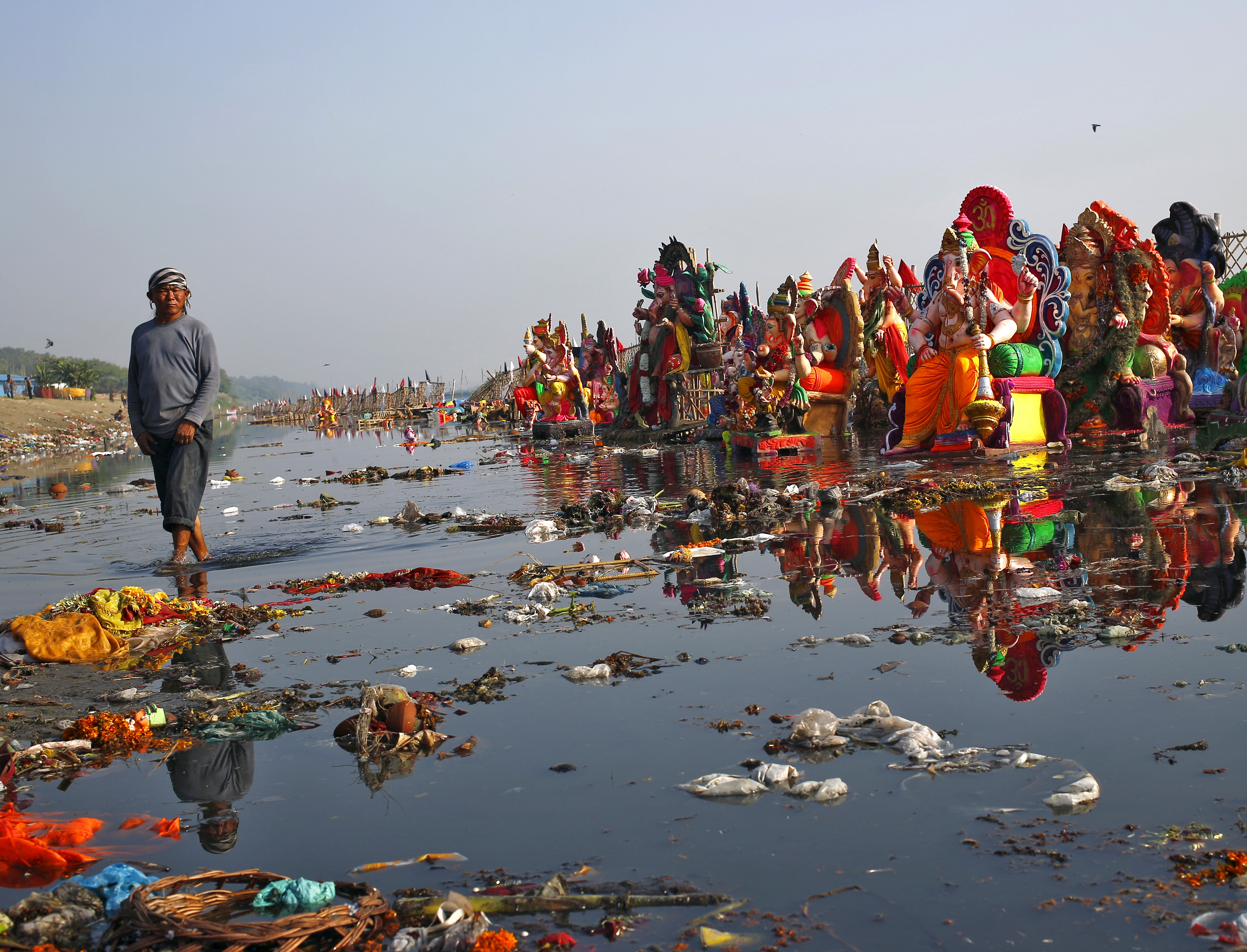
Waters of the Yamuna River in New Delhi / Photo: Reuters
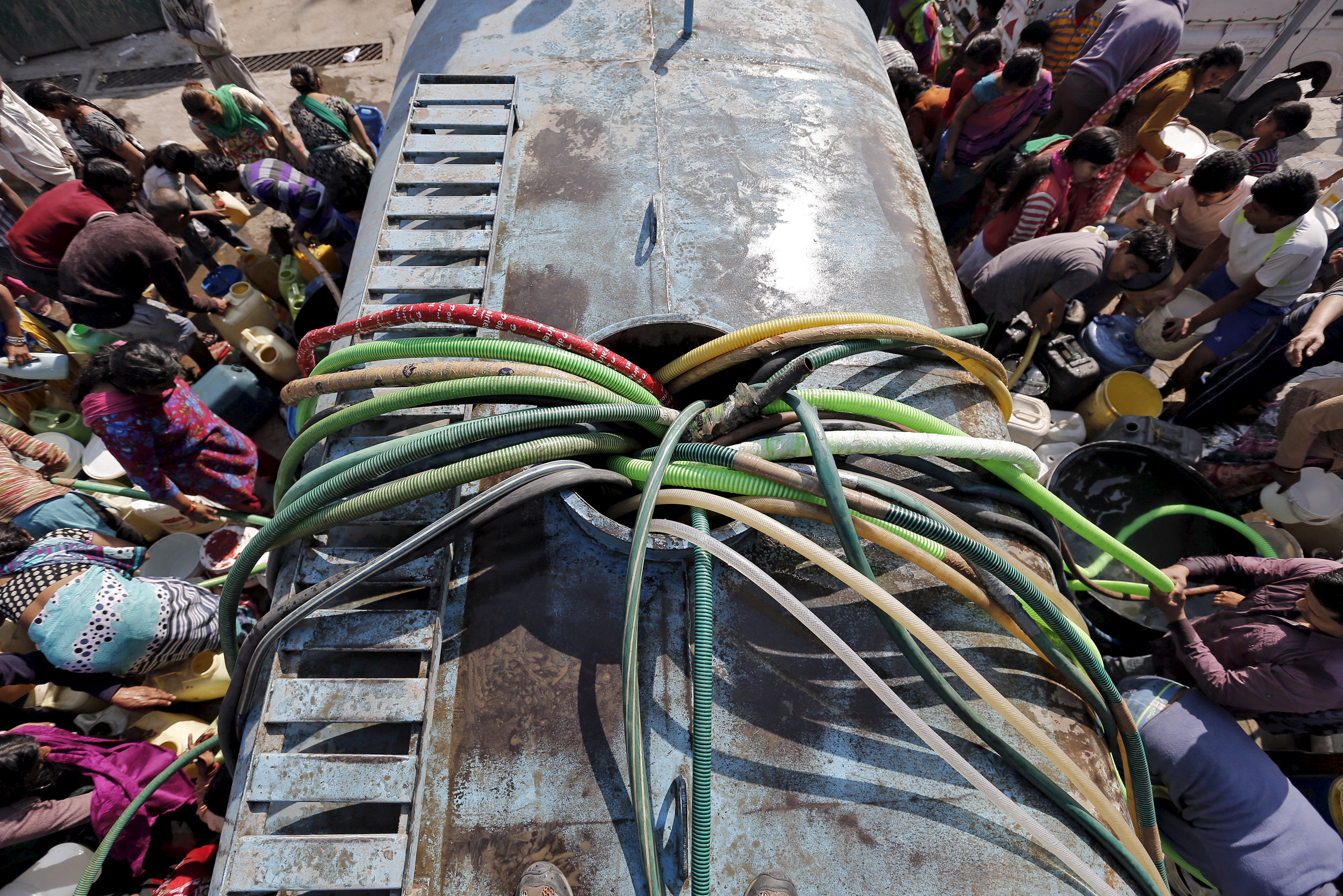
A municipal tanker in New Delhi / Photo: Reuters
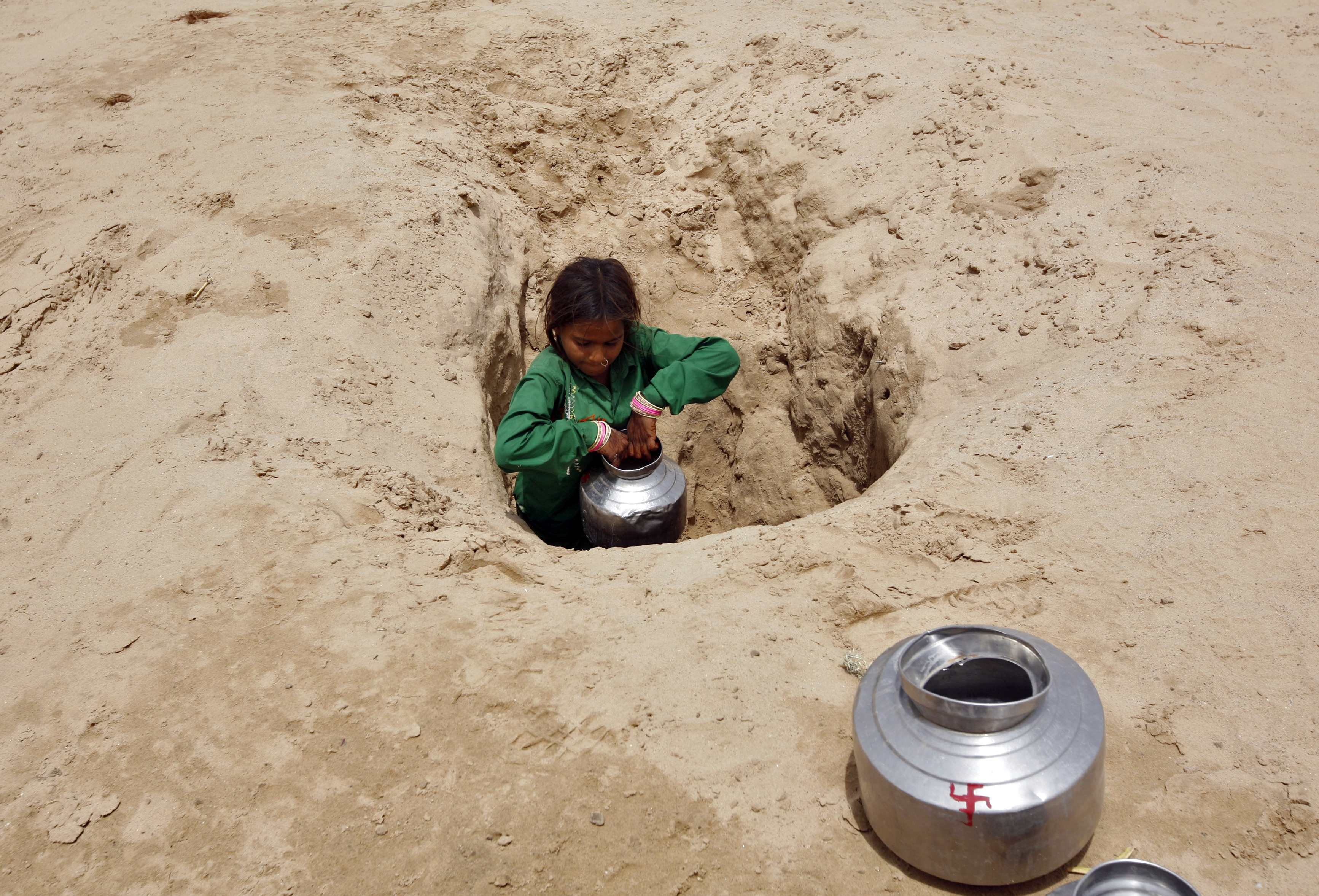
Dried-up Banas river at Sukhpur village, Ahmedabad / Photo: Reuters
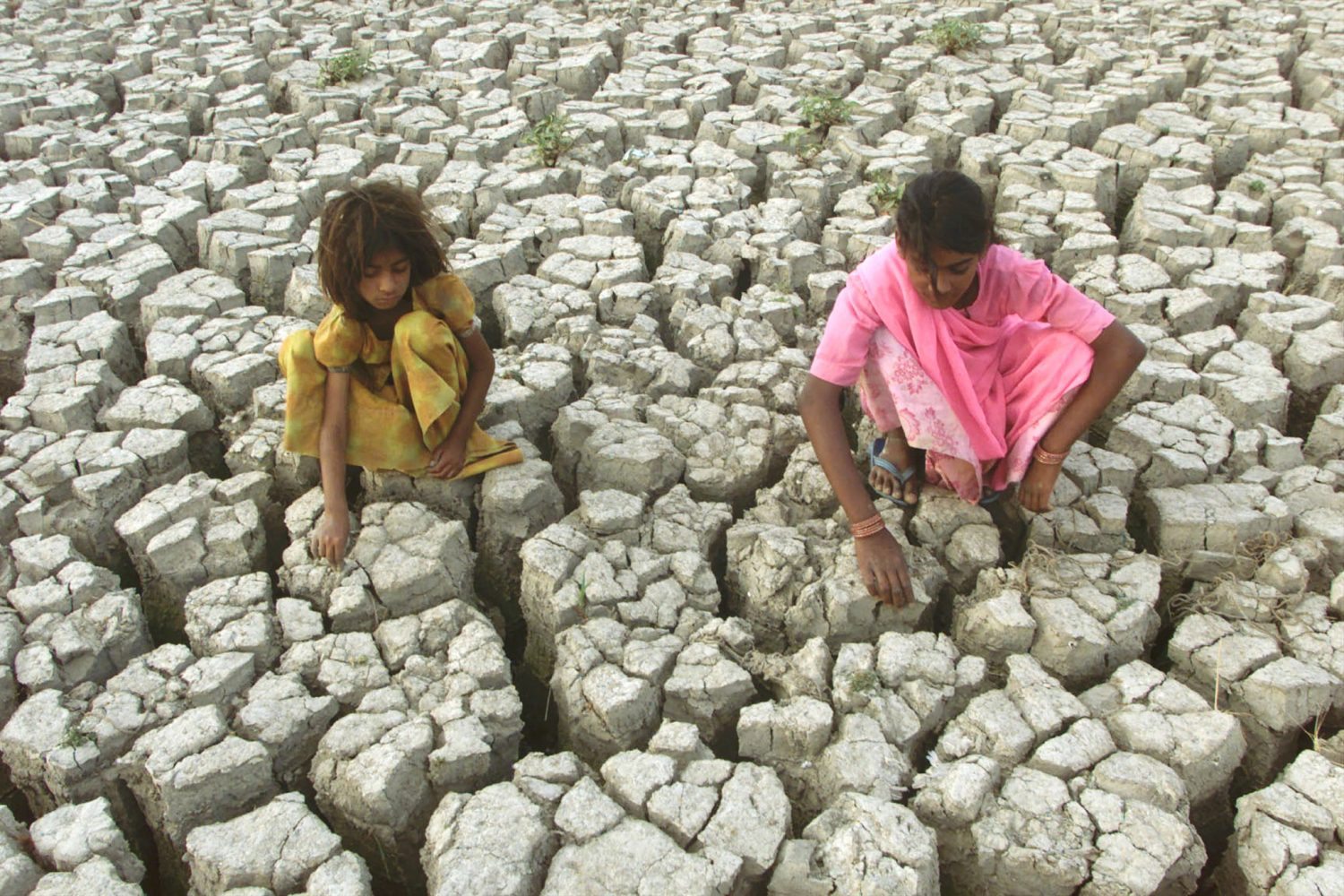
Dried out bed of the Rajsamand lake near Udaipur in Rajasthan
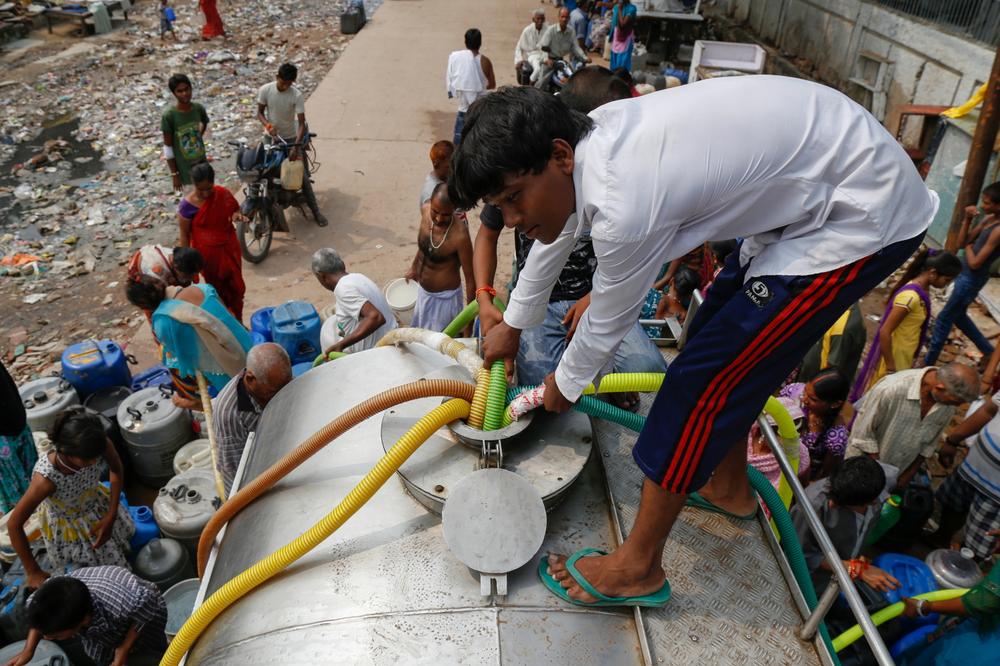
Water tanker in Delhi / Photo: Aljazeera
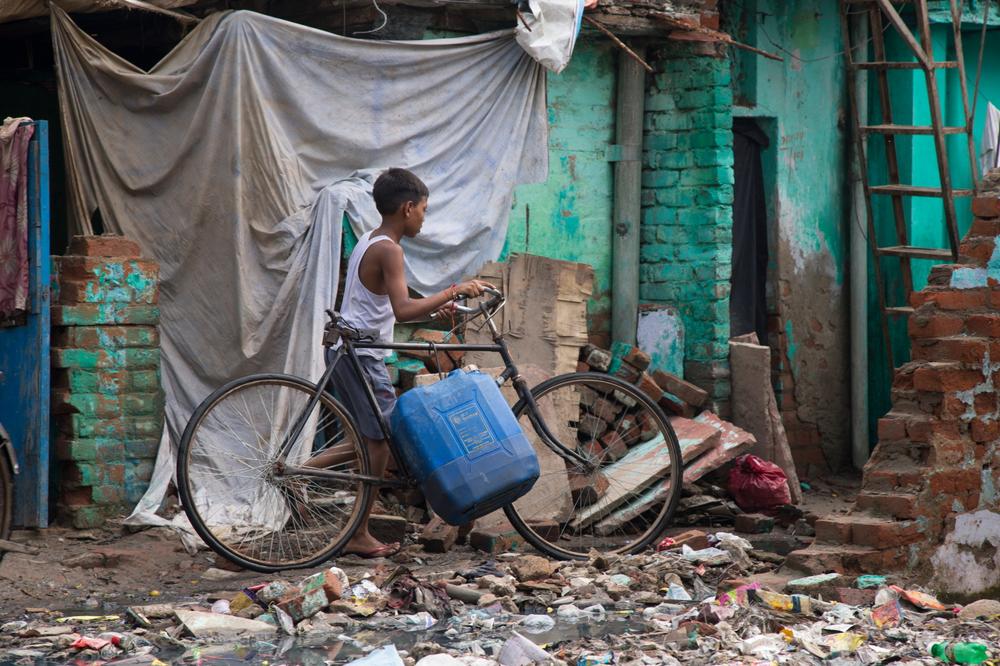
Race for drinking water in a Delhi Slum / Photo: Aljazeera
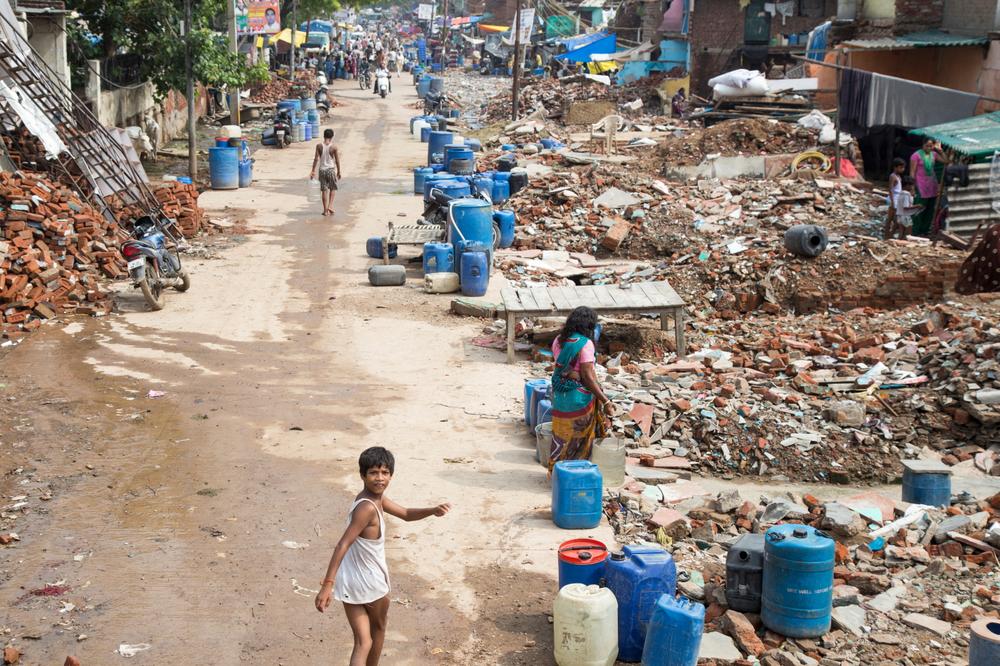
In a New Delhi slum / Photo: Aljazeera
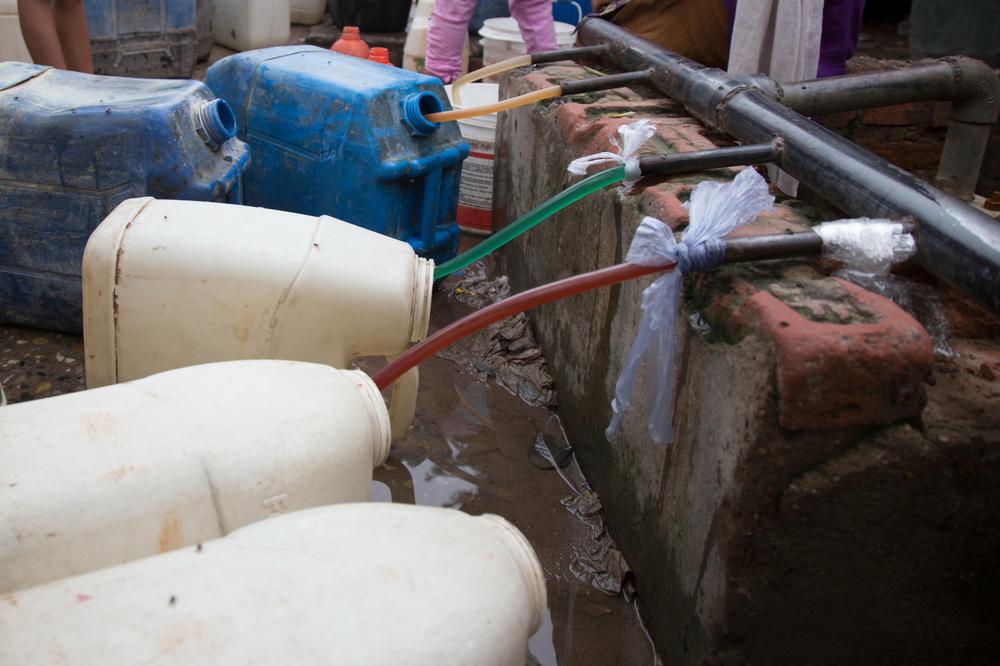
New Delhi Water Crisis / Photo: Aljazeera
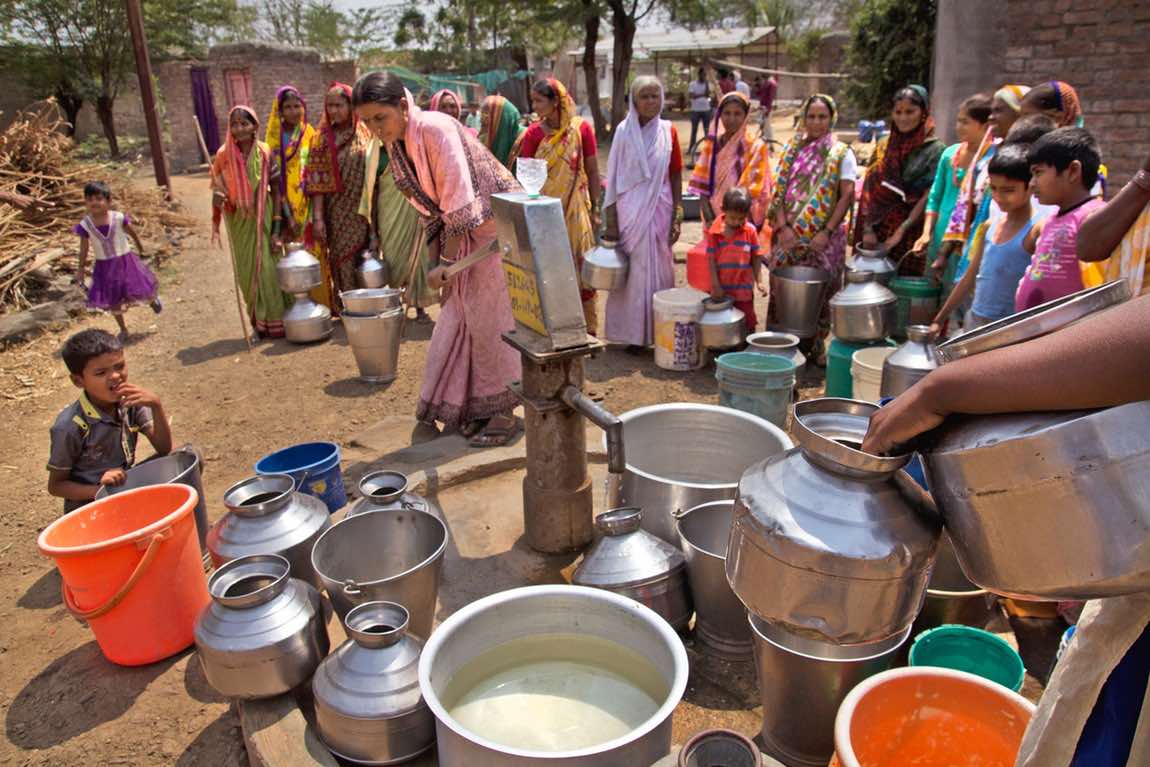
In Khomnal village of Mangalwheda Taluk, Solapur, Maharashtra / Photo: Greenpeace
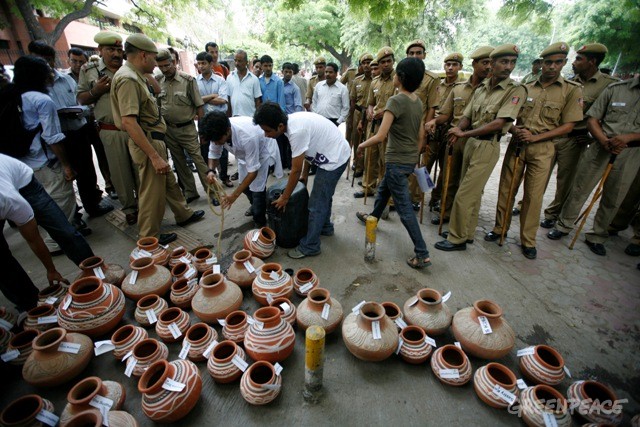
Greenpeace activists try and deposit water in the RBI to highlight one of the impacts of climate change / Photo: Greenpeace
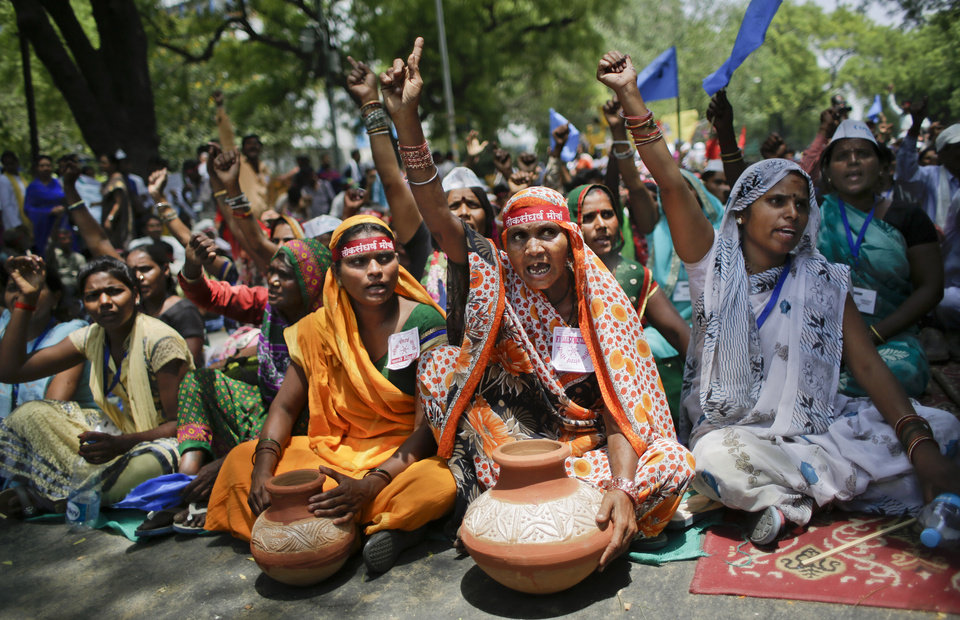
Villagers during a protest against water shortage across the country in New Delhi / Photo: AP
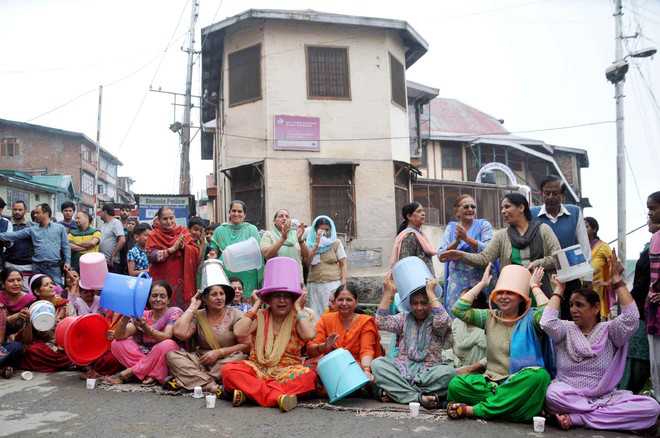
Women protesting against water shortage in Shimla, Himachal Pradesh / Photo: The Tribune
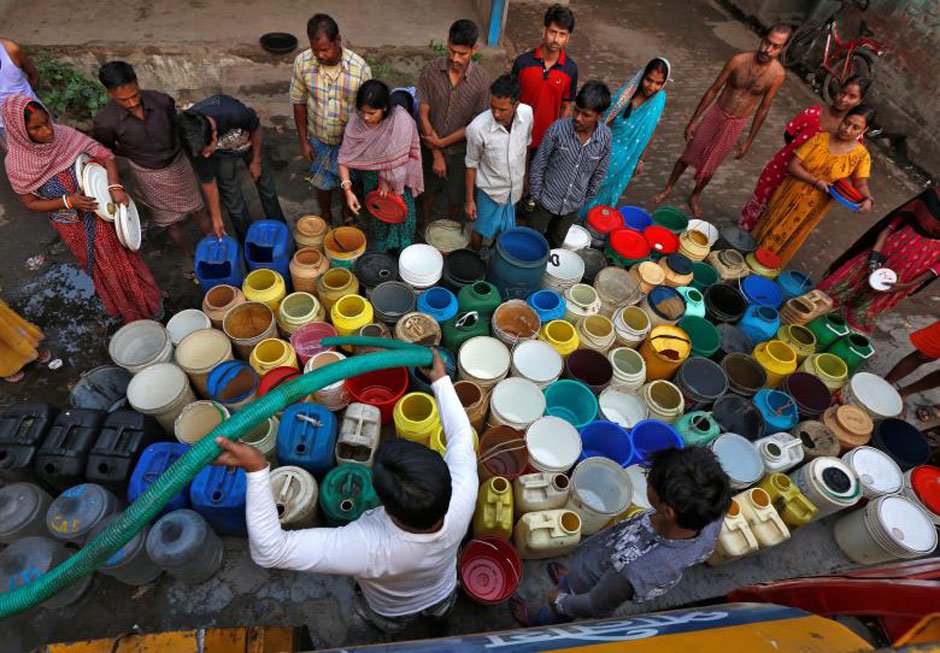
Rush for drinking water collection from a municipal tanker at a slum in Kolkata / Photo: Reuters
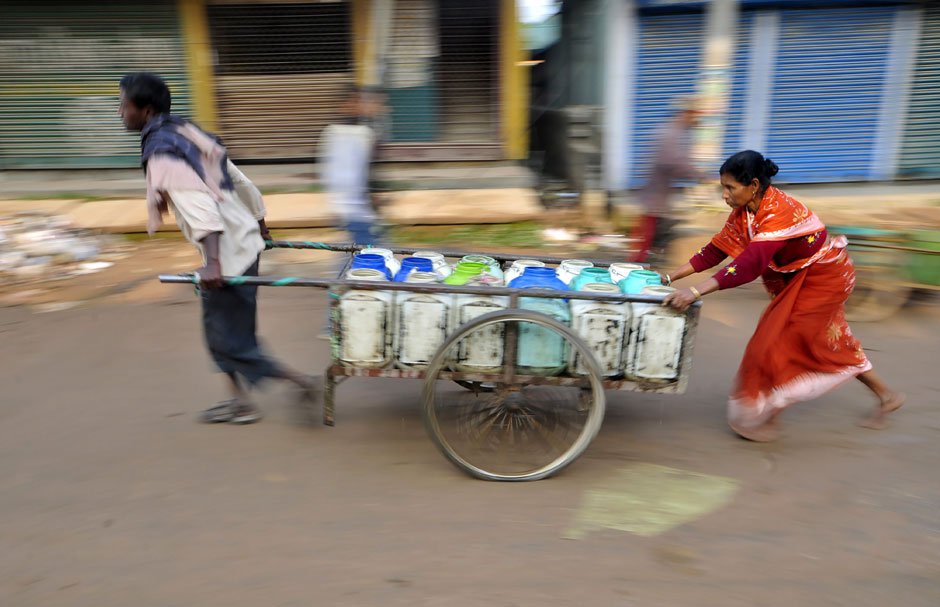
Indian laborers transport canisters of drinking water to distribute in food stalls / Photo: AFP
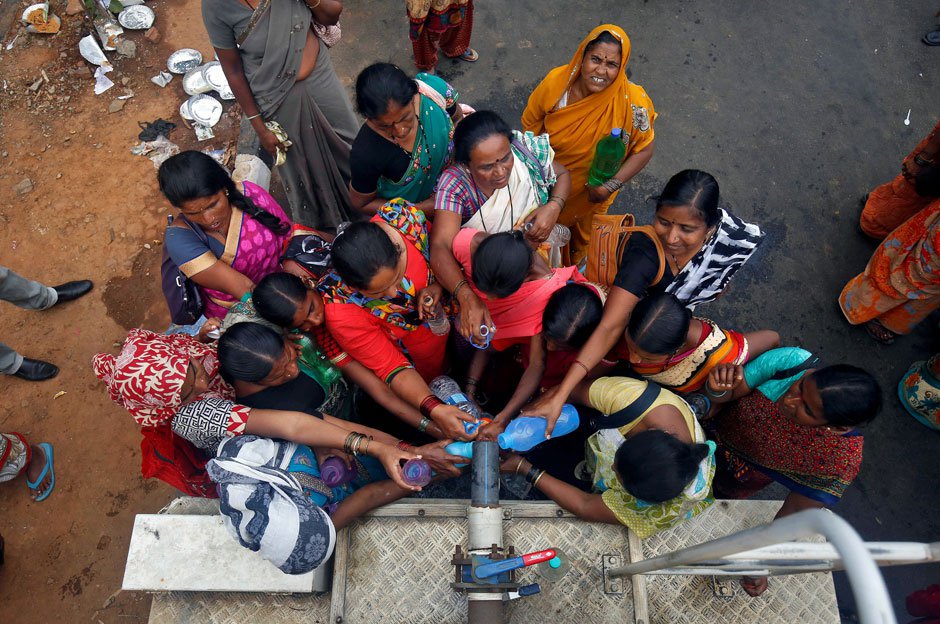
A municipal truck ahead of World Water Day in Bengaluru

